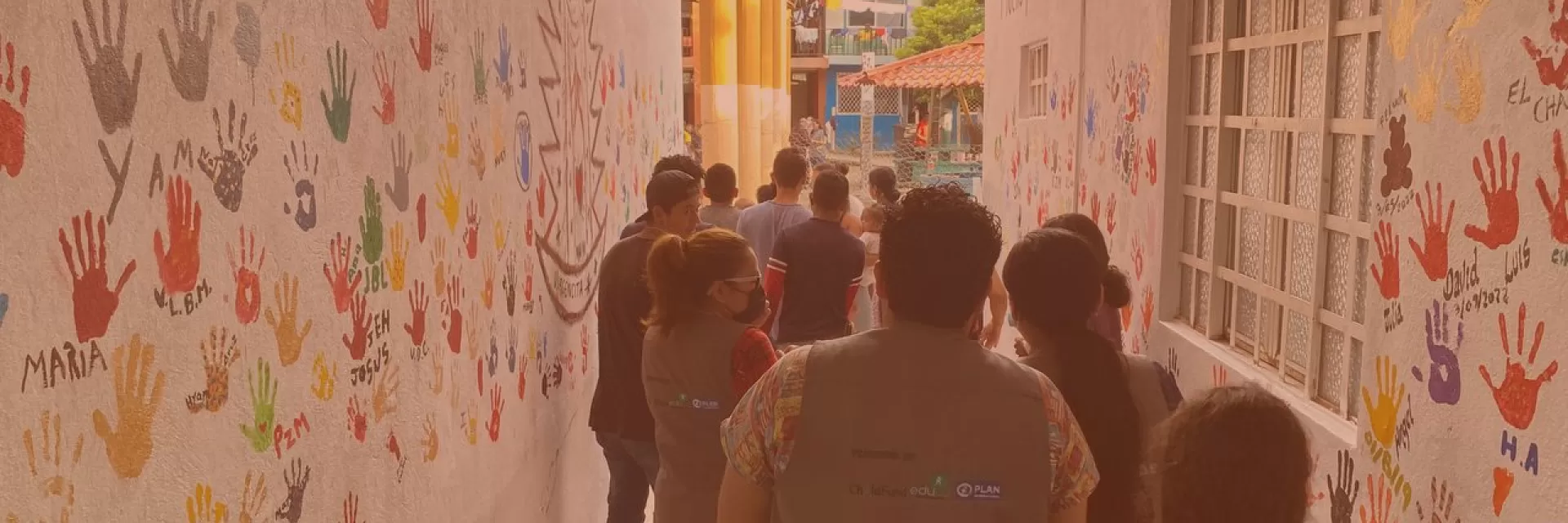Subscribe to our weekly newsletter HERE.
Inspirational and Influential Women of the World: Nora Astorga
Part I of the Inspirational and Influential Women of the World Blog Series
"The great advantage in representing Nicaragua is that this is a revolution with principles and it bases its foreign policy on its principles" - Nora Astorga
It's Not Just Oxfam
Last week The Times reported on a 2011 internal investigation conducted by Oxfam into the behavior of some of its team in Haiti.
Program Update: Haiti Reborn
Last week, I visited Haiti for the first time. Since Haiti Reborn, the Quixote Center’s program is related largely to reforestation and agroecology, I knew I would hear about and visit trees and gardens. What I knew best was that there would be a thriving forest, where once there had been barren land – and I hiked up the mountain that houses that verdant space on the third day of my visit.
Tackling the Justice System
The U.S. criminal justice system can be quite overwhelming to say the least. From the complexities of the laws and policies in place to understanding the roles of the myriad agents involved in sentencing, getting a handle on the criminal justice system is daunting. The following diagram from the organization, Prison Fellowship, provides a simple yet detailed diagram of the system. The formal system, but it doesn’t include social implications such as poverty, racism, and corrupt political agendas.
Country Highlight: Nepal
Temporary Protected Status holders increasingly fear they will not be permitted to remain in the United States. Within the last year the Trump administration has terminated TPS for four out of the 10 designated countries. This week TPS for El Salvador was terminated, impacting over 260,000 people who have lived in the U.S. for over 17 years. TPS holders and supporters continue to press for a permanent, legislative solution. In support of this effort we continue our series on TPS; this week with a profile of Nepal.
The NICA Act and the never-ending hypocrisy of U.S. foreign policy
The Nicaragua Investment Conditionality Act of 2017 could see action in the U.S. Senate in the coming weeks. The “NICA” Act directs U.S.
Operation Streamline: Fast Tracking Deportation
In November, I traveled to the School of the Americas’ (SOA) Encuentro Watch to learn more about immigration and the demilitarization of the US-Mexico border. Upon arrival, I was picked up from the Tucson airport and driven to US District Court Pro SE Office in Tucson, Arizona. This courthouse is noteworthy, because it is one of the three courts in the country that utilizes Operation Streamline.
Adventures in the “Land of Lakes and Volcanoes”
It has been a little over a month since we got back from the “land of lakes and volcanoes,” ‘aka’ Nicaragua, a delegation of six individuals from different lives who willfully spent a week together in another country where language was a barrier for some. It was like a social justice version of MTV’s The Real-World. And, unlike the 90s tv show, it was both a positive and eye-opening experience.
Take Action in Defense of Democracy in Honduras
The crisis in Honduras in the wake of the November 26 election continues. As documented here by Rick Sterling the evidence suggests strongly that the ruling National Party tampered with the voting process to ensure victory for Juan Orlando Hernandez:


